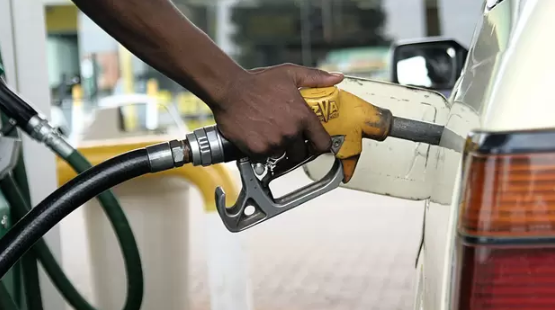Belgium has banned the export of harmful motor fuels to West African countries, including Ghana, Nigeria, and Cameroon, which pose significant risks to public health and the environment.
Belgium’s Minister of Climate, Environment, Sustainable Development and Green Deal, Zakia Khattabi announced the ban, citing the need to stop exporting toxic fuels that are not allowed for domestic use but were still being shipped to Africa.
The ban targets oil companies exporting harmful motor fuels with high sulfur and benzene content from Antwerp, which were long banned in Europe due to their harmful health and environmental impacts.
"For far too long, toxic fuels have been departing from Belgium to destinations including Africa. They cause extremely poor air quality in countries such as Ghana, Nigeria and Cameroon and are even carcinogenic.
"Oil producers and traders export gasoline with excessively high levels of benzene and sulfur,” the statement published on the Minister’s official website stated.
The statement added, “There is a risk that the trade has shifted to Belgium because the Netherlands already restricted the export of these dirty fuels.
"That is why I have decided to take action in collaboration with the Ministers of Energy and Minister of Public Health."
The ban follows the enactment of new legislation, which received Royal assent, aimed at improving the quality of exported fuels by setting stricter standards.
“A Royal Decree will be published soon, signed by the three ministers. It is based on the federal authority of product standardisation and imposes the same quality standards on motor fuels for export as those for the European market,” the statement indicated.
The new regulation will come into force three months after the Royal Decree is published, following a positive opinion from the Council of State.
The Minister of Environment is currently drafting the Royal Decree in conjunction with the Ministers of Energy and Public Health, ensuring a collaborative approach to implementing the new rules.
Oil companies have been exporting fuels with alarmingly high sulfur levels of up to 1,500 ppm, vastly exceeding the European limit of 10 ppm.
Energy Minister Tinne Van der Straeten argued that the same stringent standards that protect Belgium's environment and citizens from toxic fuels should also be applied to exports, ensuring a level playing field and global protection.
“By joining our forces and powers, we can put an end to the export of toxic and carcinogenic fuels to third countries. It should be obvious that the standards we apply at home to protect the environment and citizens should also apply to exported products.
"Since the oil companies concerned will not take this responsibility on their own, we call on the administration to introduce controls on exported fuels."
Deputy Prime Minister and Minister of Social Affairs and Public Health, Frank Vandenbroucke, expressed surprise that producers export harmful motor fuels that are not permitted for use in Belgium, highlighting the need for stricter regulations to protect public health globally.
“With this royal decree, we now ensure that products that are not allowed in Europe due to their harmfulness are also prohibited for export. This way, we protect the health of people worldwide."
Belgium joins Netherlands in banning export of toxic fuels to West Africa
Belgium has joined the Netherlands in prohibiting the export of harmful gasoline and diesel to West Africa, after the Netherlands' ban in April 2023 led to Antwerp becoming a hub for toxic fuel exports.
Antwerp's strategic location and existing oil and chemical infrastructure made it an attractive hub for companies, with 30 firms, including 10 global leaders, operating in the area.
Antwerp's strategic location makes it a prime hub for liquid bulk cargo, solidifying its position as a leading European oil and chemical hub. The port area is home to around 30 companies in the oil and chemical sector, including at least 10 global industry leaders, as well as two major refineries.
According to S&P Global Commodities at Sea data, Belgium exported approximately 137,000 barrels of gasoline to West Africa daily in April, marking an 18% increase from the same period in the previous year.
The ARA ports (Amsterdam-Rotterdam-Antwerp) handle half of Europe's fuel exports to Africa, with Dutch and Belgian ports sharing the load equally. Following the Netherlands' ban, Antwerp has substantially reduced its exports of the fuel.
Belgium's ban on "dirty diesel" exports is expected to yield numerous benefits, including protecting public health, reducing respiratory diseases and cancers caused by fuel emissions, minimizing air pollution and environmental damage, and preventing African countries from receiving substandard products that don't meet European norms.
The ban is also to promote cleaner energy and support a more sustainable future.
Latest Stories
-
Paris 2024: Opening ceremony showcases grandiose celebration of French culture and diversity
3 hours -
How decline of Indian vultures led to 500,000 human deaths
3 hours -
Paris 2024: Ghana rocks ‘fabulous fugu’ at olympics opening ceremony
4 hours -
Trust Hospital faces financial strain with rising debt levels – Auditor-General’s report
4 hours -
Electrochem lease: Allocate portions of land to Songor people – Resident demand
4 hours -
82 widows receive financial aid from Chayil Foundation
5 hours -
The silent struggles: Female journalists grapple with Ghana’s high cost of living
5 hours -
BoG yet to make any payment to Service Ghana Auto Group
5 hours -
‘Crushed Young’: The Multimedia Group, JL Properties surprise accident victim’s family with fully-furnished apartment
5 hours -
Asante Kotoko needs structure that would outlive any administration – Opoku Nti
6 hours -
JoyNews exposé on Customs officials demanding bribes airs on July 29
6 hours -
JoyNews Impact Maker Awardee ships first consignment of honey from Kwahu Afram Plains
7 hours -
Joint committee under fire over report on salt mining lease granted Electrochem
7 hours -
Life Lounge with Edem Knight-Tay: Don’t be beaten the third time
8 hours -
Pro-NPP group launched to help ‘Break the 8’
8 hours

